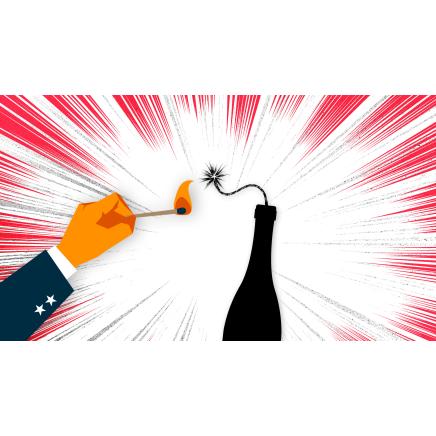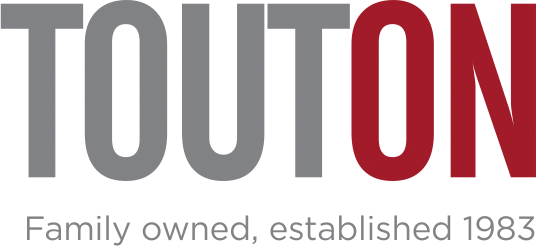Tariffs on European Wines Never Went Away

Tariffs on European Wines Never Went Away
The U.S. and European Union are no closer to an agreement on airplane manufacturers, meaning wine sellers and consumers could continue to suffer.
article originally featured in Wine Spectator Jun 24th 2020
The coronavirus pandemic may have impacted large portions of American life in recent months, but it did not pause the tariffs the Trump administration imposed on many European wines last year. Now those tariffs are up for review again. The Office of the U.S. Trade Representative (USTR) begins accepting public comments on the tariffs on June 26, giving members of the wine trade and consumers a chance to speak up. The odds of the tariffs being lifted do not look good, and it’s possible the White House could raise them. Negotiations with the European Union over subsidies to Airbus, the cause of the tariff fight, have broken down. What’s more, the USTR has begun a separate investigation into a dispute with Italy, Spain and other nations that could potentially lead to additional tariffs.
Wait, what does Airbus have to do with wine?
The trade war fight stems from a two-decade dispute between the U.S. and the E.U. over subsidies from Spain, France, Germany and the U.K. to Airbus. The E.U. counters that the U.S. and Washington state have given unfair benefits to Boeing.
On Oct. 2, 2019, the World Trade Organization (WTO) gave the U.S. the green light to impose duties on $7.5 billion worth of European goods after the E.U. was found guilty of unfair subsidies. The following day, the Trump administration announced 25 percent tariffs on a wide range of European products, including cheese, olive oil, single-malt Scotch and cashmere sweaters, which went into effect Oct. 18.
Table wines with less than 14 percent alcohol from the four nations that gave subsidies were also slapped with 25 percent tariffs. The U.S. imposed 10 percent tariffs on European airplane parts.
By law, the USTR must review these tariffs every few months, deciding whether to keep them, reduce them or increase them. The last review was held at the beginning of this year—one of the options on the table was expanding the wine tariffs to 100 percent and applying them to more wines from more E.U. nations. More than 28,000 comments were posted online during the review. Wine importers, retailers and sommeliers loudly spoke out against the tariffs. “The retaliatory tariffs on wine do significantly more damage to U.S. businesses than to E.U. businesses,” said Ben Aneff, managing partner of Tribeca Wine Merchants and current president of the U.S. Wine Trade Alliance (USWTA). Many European vintners can find other markets for their wines. American companies that sell wine don’t have that luxury. “This makes the tariffs on wine incredibly ineffective.” On Feb. 14, U.S. Trade Representative Robert Lighthizer announced that the tariffs on airplane parts would be increased to 15 percent. The tariffs on wine would remain the same.
Same fight, different time
The next review of the tariffs is expected to be completed by Aug. 12. All options are again on the table. The big difference now is that many of the businesses most impacted by the duties have been further weakened by the pandemic. “The moment restaurants are trying to pick themselves up off the ground, they’re facing the possibility of paying more for an important part of their business,” said Aneff.
And hopes of a solution with Europe have not come to fruition. Earlier, this month, E.U. Trade Commissioner Phil Hogan told a virtual meeting of European trade ministers that the U.S. has stepped back from talks to settle the dispute. “Positions are therefore still quite far apart,” Hogan said. “If this remains the case, the E.U. will [have] little choice but to exercise its retaliation rights and impose our own sanctions in the Boeing case.”
Without an agreement on the aircraft issue, wine will likely continue to be collateral damage in the trade war.
A new threat
The USTR has also initiated a new investigation that could lead to additional tariffs on wine later this year. On June 2, it announced it was looking into digital service taxes enacted or being considered by numerous countries, including Italy and Spain. “President Trump is concerned that many of our trading partners are adopting tax schemes designed to unfairly target our companies,” said Lighthizer, in a statement. “We are prepared to take all appropriate action to defend our businesses and workers against any such discrimination.”
While the investigation has just begun and wine has not been mentioned as a potential retaliatory target, a similar investigation nearly led to 100 percent tariffs on French sparkling wines earlier this year.
The sparkling spat stemmed from France’s digital services tax, which imposes a 3 percent tax on firms with more €750 million in global revenue, and €25 million in revenue in France. The Trump administration argues the tax unfairly targets U.S. Internet companies. The French government argues that big international tech firms are profiting off of French consumers but not paying sufficient taxes. French President Emmanuel Macron eventually agreed to put the tax on hold during negotiations over an international system of digital taxes by representatives of 140 countries at the Organization for Economic Cooperation and Development (OECD).
Last week, U.S. Treasury Secretary Steven Mnuchin announced the U.S. was withdrawing from negotiations, saying talks had made no progress. Without an agreement, E.U. countries have promised to impose their own digital taxes. “A trade war, especially at this point in time, where the world economy is going through a historical downturn, would hurt the economy, jobs and confidence even further,” OECD Secretary General Angel Gurria said in a statement, urging all sides to reach a deal.


